
The trip changed his life but not in the way he expected. Almost as soon as Clemens boarded the steamer in April 1857, his dreams of South America began to fade. An old childhood dream-to pilot a Mississippi steamboat-grew stronger. He soon made friends with the vessel's pilot, Horace Bixby. He spent hours in the pilothouse.
Years later, Clemens wrote, "When I was a boy, there was but one permanent ambition among my comrades in our village on the west bank of the Mississippi River. That was, to be a steamboatman." The king among steamboat men was the pilot, the man who "drove" the boat.
It was no wonder that boys dreamed of piloting a Mississippi riverboat. With the exception of ocean steamers, they were the largest, most powerful vehicles of their time. Large riverboats were powered by eight or more huge boilers. They were longer than a football field and weighed more than 350 tons. Many riverboats carried about 1,000 tons of freight and more than 200 passengers and crew members. And pilots earned excellent pay: A good pilot earned as much as the nation's vice president.
This story is from the April 2023 edition of Cobblestone American History Magazine for Kids.
Start your 7-day Magzter GOLD free trial to access thousands of curated premium stories, and 9,000+ magazines and newspapers.
Already a subscriber ? Sign In
This story is from the April 2023 edition of Cobblestone American History Magazine for Kids.
Start your 7-day Magzter GOLD free trial to access thousands of curated premium stories, and 9,000+ magazines and newspapers.
Already a subscriber? Sign In
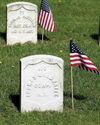
Putting the Pieces Together
Americans needed to begin to put the past behind them, come together, and plan for the future in the spring of 1865. But Abraham Lincoln, the man best equipped to lead them and who had hoped to restore the country as smoothly and peacefully as possible, had been assassinated.
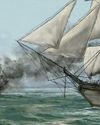
LAST SHOTS
The last Confederate forces in the Civil War didn’t surrender in the spring of 1865 or on a battlefield.
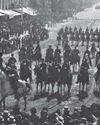
AND IN OTHER 1865 NEWS
A group of African Americans stop at the White House’s annual public reception on January 1, where they shake hands with President Abraham Lincoln.
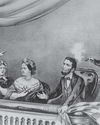
A Plot to Kill President the
For several months, actor John Wilkes Booth’s band of conspirators had plotted to capture President Abraham Lincoln and hold him hostage in exchange for Confederate prisoners.
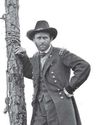
Let the Thing Be Pressed
In June 1864, Union Lieutenant General Ulysses S. Grant began a nearly 10-month campaign in Virginia.
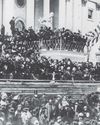
HEALING THE NATION
President Abraham Lincoln took the oath of office for the second time on March 4, 1865.

A Helping Hand
The spring season is hard in any agricultural society. Plants and animals are too small to eat.
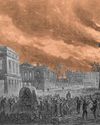
WAR SHERMAN-STYLE
As far as Union Major General William T. Sherman was concerned, the Civil War had gone on long enough.
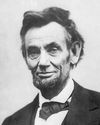
PEACE TALKS
The fall of Fort Fisher made clear that the Confederacy’s days were numbered. Southerners were tired and hungry.
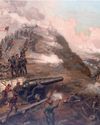
FORT FISHER'S FALL
Outnumbered Confederate soldiers inside Fort Fisher were unable to withstand the approach of Union troops by land and the constant Union naval bombardment from the sea.